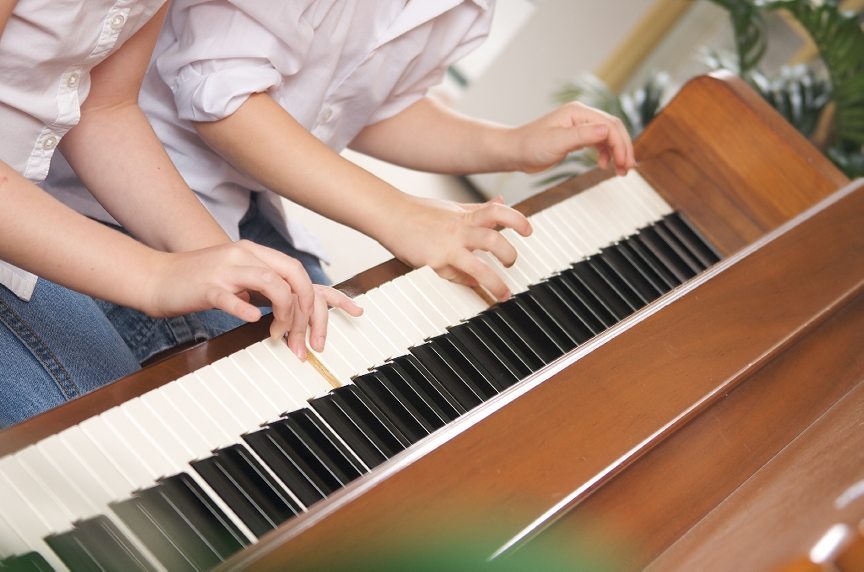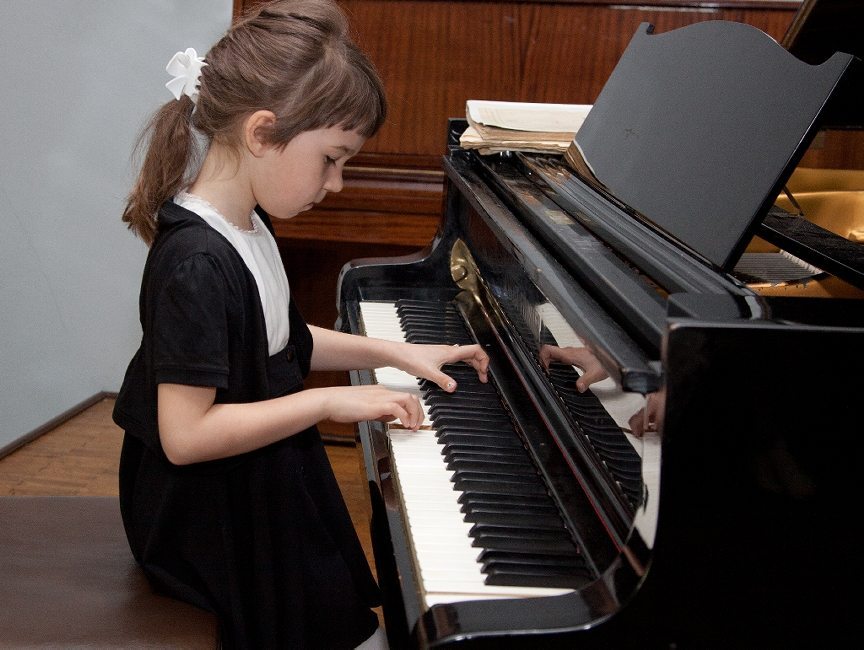New customers often ask if it is a great idea to let their young children take piano lessons, as they
Piano Lessons can Help Raise Self-Esteem
I always tell my clients that playing the piano takes a lot of hard work and dedication. Thus, they must ensure that their children are aware of that. In fact, it is advisable that parents sit down with their children during practice, so that they feel encouraged by their (parents) presence and the interest they show. It does not take very long for children to get used to playing the piano, and you will be surprised to hear that within a few months, the piano teacher is already listing your child as one of the performers for a piano recital. Performing in front of audience can definitely boost a child’s self-esteem. Besides improving one’s confidence, playing the piano also helps him to keep a positive stance when he is facing challenging tasks.
Piano Lessons can Help Children in School
Studies have shown that children who learn to play the piano do far better in school. They score higher in spatial cognitive development and standard tests than their classmates who do not learn any type of musical instrument. In addition, they regularly score higher in arithmetic, particularly in problems dealing with fractions and ratios. In one study conducted by a psychologist and physicist that consisted of preschoolers, they found that these young children scored at least 35% higher than their counterparts who did not take part in any music lessons. The measurements were based on the children’s spatial-temporal reasoning, which is the part of the brain that is used to understand engineering, science, and mathematics.
Piano Lessons Amplifies Coordination
Playing the piano allows children to enhance their hand-eye coordination. At the same time, their motor skills are also improved. Hand-eye coordination is not very easy, as both hands need to work independently, and more often than not, many young children are not able to do this without playing the piano. Eventually, all the above will help your children to increase their overall thought processes and dexterity.
Piano Lessons can Help Children to Concentrate Better
Not many people know this but reading a musical piece or music notes takes a great deal of attention, because a child needs to interpret a rhythm and note, and thereafter, transmit it into hand movements on the piano. Then, he will instantaneously go to the next one. Reading and playing the piano allows children to think both creatively and critically, which is an ability that will help them in anything they want to be or do in the future.
Piano Lessons can Help Children to Become Well-Rounded
Whether your children play the piano for an entire lifetime or otherwise, the long-term consequences of their piano-playing pursuance are aplenty. Through the lessons, they are exposed to many different genres, such as jazz or classical, which they may not have even heard of on their own. Your children will develop an appreciation for and an interest in composers like Mozart or Bach. This new interest can stay with them for many years to come.
There is no doubt that piano lessons can definitely lend a hand in increasing your children’s self-esteem, motor skills, and many more. It is a great idea to provide these lessons to them, so that they can improve in school and in general life.
What other ways do you think a child can increase his self-esteem?







